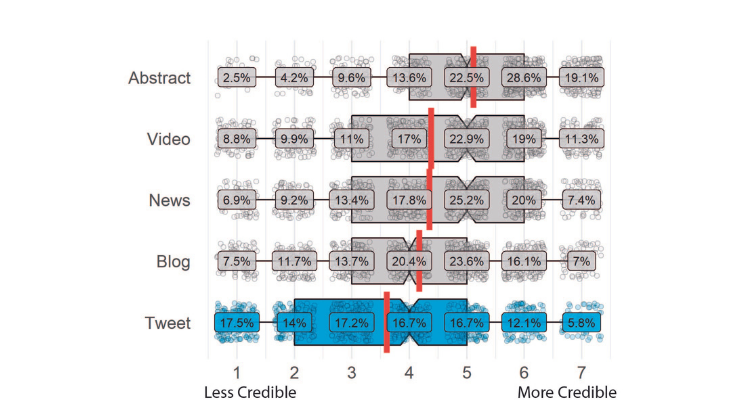 Martin Weller highlights the essential responsibility on the side of the university in institutionalising recognition and reward for academics’ digital activities. Furthermore, he argues a university’s response on digital practice can serve as a barometer for their own overall innovation and success. This article originally appeared on Martin Weller’s personal blog, The Ed Techie and is reposted under
Martin Weller highlights the essential responsibility on the side of the university in institutionalising recognition and reward for academics’ digital activities. Furthermore, he argues a university’s response on digital practice can serve as a barometer for their own overall innovation and success. This article originally appeared on Martin Weller’s personal blog, The Ed Techie and is reposted under ![]() .
.
I use this blog as well as our university repository system to keep track (and shamelessly publicise) those journal article things that your grandad told you about.
I have a new article out in RUSC (the open access journal from the University of Catalonia). It has the snappy title of “Digital scholarship and the tenure process as an indicator of change in universities”. You can access the PDF here through our repository,or at RUSC here.
It’s an extension of some of the stuff I covered in the book, and I’m making the argument that how universities respond to the challenge of recognising digital scholarship can be taken as a barometer for how well prepared they are for dealing with the complexities of operating in a digital, networked context. Here is a quote from the conclusions:
Recognising and rewarding digital scholarship has a significance beyond the promotion of individuals. For universities, as they seek to manage change to a digital, networked society, it acts as a strong indicator and vehicle for change.
There are two main reasons for prioritising the recognition of digital scholarship. The first is the message it sends to individuals within the university. Because they operate in an open, digital, networked manner, digital scholars are often well known in their institution (for example, many of their colleagues will read their blogs). If a well-known digital scholar struggles to get their work recognised, then it sends a message to the rest of the university that this is not the type of activity that is likely to be rewarded, with a subsequent decline in its uptake. The reverse happens if that digital scholar is rewarded; it sends the positive message that academics should engage in this type of activity.
The second reason for recognising digital scholarship is to encourage institutional innovation. For example, universities are beginning to explore the use of Facebook to support students, or the use of blogs to disseminate research findings to the public, or new models of course development based on third-party content and crowdsourcing. There are very real benefits to the institution from these approaches, such as reaching new audiences, increasing the university profile without advertising, increasing student retention through improved peer support, lowering the costs of course production, developing new research methodology, etc. But it is difficult to realise any of these institutional approaches to new media if the university does not have a solid base of digital scholarship experience to draw upon. Having a range of digital scholarship experience amongst the faculty will be the key resource in realising the change required for many universities, and an appropriate reward and tenure process acts as a means of facilitating and encouraging this.
Note: This article gives the views of the author(s), and not the position of the Impact of Social Sciences blog, nor of the London School of Economics.
About the author:
Martin Weller is Professor of Educational Technology at the Open University. He chaired the OU’s first major online course, with over 15,000 students annually, and was also the VLE project director. His interests are in the impact of new technologies, open education and learning environments. He has recently authored the book The Digital Scholar, which is published by Bloomsbury and available as open access. He blogs at edtechie.net








2 Comments